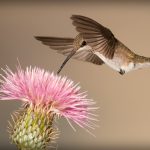There has been plenty of discussion over the last few years of just how important bees are to our ecosystems throughout the world. That might not grab you, or maybe to look at it as someone else’s problem. Maybe you don’t think there’s anything you can do to help out. Or maybe you just haven’t read up enough. Well, that’s what we’re here for.
Courtesy: Jesse Eastland
Why Are Bees So Important?
Bees are the most common and most efficient pollinators in the world. Plants such as tomatoes, peppers, and more need to be pollinated in order to provide us with food, and this is done by a number of animals, including mammals and a variety of insects. Bees, however, are the most efficient and prolific pollinators in the world.
How Do I Attract Bees?
The best way to bring more bees around to help out your lawn and garden is to provide them with targets – flowers such as the aster and others that are rich in pollen and nectar will bring bees around. Stay away from flowers like begonias and impatiens, which do not provide pollens or anything else that is useful to them.
Flowers native to your area is also a great way to bring bees around. Many non-native plants do not have the pollen that the bees are looking for, so they will ignore them. You can find a short list of plants that are popular with bees here, and you can check with a local apiarist or at a local garden center for other plants that may be beneficial.
Another way to attract some of the solitary species – of the 20,000 species worldwide, many of them are solitary or communal species, not hive (also known as eusocial) species – is to provide nest boxes. If you don’t want to give them a box, instead leave bits of habitat around they can use to make nests. This includes mud, sticks, and lawn debris.
What About Getting Stung?
Bees don’t want to sting you, they’d rather just be left alone. Using their stinger is a defensive mechanism, and almost always only used when they feel they have no other option to protect themselves or their nest. Some bees can not sting at all, while others are incredibly unlikely to sting humans. The more you worry about getting stung and the more you react to a bee buzzing around, the more likely you are to get stung. Unlike wasps and yellowjackets, bees are not incredibly aggressive.
What If I’m Allergic?
The good news is, you’re not necessarily allergic to bees, but their sting. First off, try to avoid getting stung – you can find some tips and hints here. Second, check with your doctor to see if you should be carrying an EpiPen or other way to treat anaphylaxis. Finally, just don’t worry too much about it – the more you fret about every little bee that buzzes around you, the more likely you are to cause them to see you as a threat.
So try to make your lawn and garden bee-friendly if you can. They will help to pollinate and create a thriving garden, while helping to balance out your local ecosystem – and ecosystem without bees is incomplete. Do your best to avoid using pesticides that will deter or kill bees – we need to keep them around and healthy.






